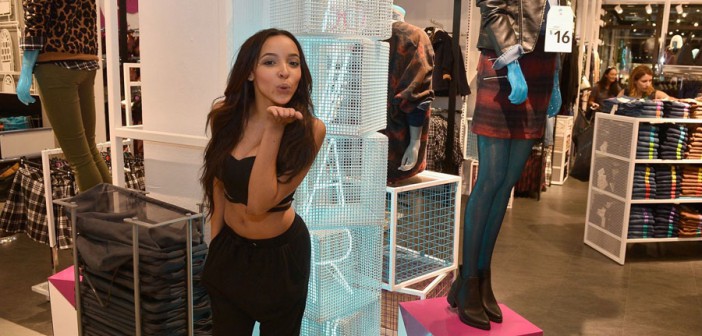Another European brand has crossed the Atlantic to help satiate the American appetite for cheap clothes
Primark, the Irish fast-fashion retailer known for mind-bogglingly cheap clothes—cheaper than even H&M—has come to the United States. Its 77,000-square-foot shop in Boston’s Downtown Crossing is the first of eight locations planned for the country this year, including one in New York.
Primark has at least one major hurdle to clear: it’s entering a crowded market in which it has virtually no brand recognition. But it also has some factors working in its favor—namely America’s seemingly insatiable desire for cheap clothing from stores abundant with it. In 2013, the average American spent $1,141 to buy 64 garments and more than seven pairs of shoes, more than any other country in the world.
Primark, if anything, is definitely cheap. A comparison of prices at Primark and its fast-fashion rivals last year by the Wall Street Journal pegged Primark as the least expensive of the bunch. A pair of jeans at Zara cost $42. A similar pair at H&M was just $13. The price tag at Primark: $10.

While Primark has been around since 1969, it’s only in the last decade or so that it’s become a major force in fast-fashion. Its parent company is the unlikely Associated British Foods, which describes itself as “a diversified international food, ingredients and retail group.” Much of its revenue comes wholesale businesses, like the yeast and dough conditioners it sells to bakeries and the cane sugar mills it runs in China.
But the company has proven a skilled retailer, as well. Primark now has more than 270 stores across Europe. Much like H&M and Zara, which have done well in the US, it’s adept at identifying commercial hits from the runways and getting them on racks before even the originator can, earning it the nickname Primarni. (Supposedly it’s a mash-up of “Primark” and “Armani,” but if it’s supposed to indicate that Primark is on-trend, it probably makes more sense as a mix of Primark and “Marni,” the playful Italian luxury label.)
Of course, being cheap and trendy isn’t always enough. Even the well-established American retailer Forever 21 may have to scale back its giant stores, and take out a loan, as its growth stalls.
In Britain, Primark is something of a cultural touchstone, and not necessarily in a good way. It’s basically shorthand for cheap clothes of exceedingly low quality.
But Primark doesn’t have that baggage across the Atlantic. There, it’s relatively unknown—though that’s about to change.




